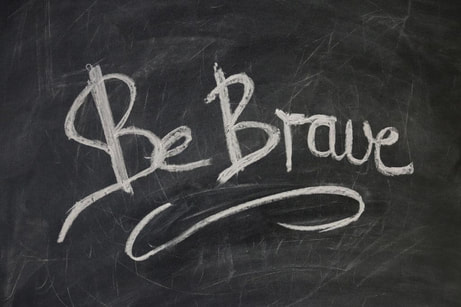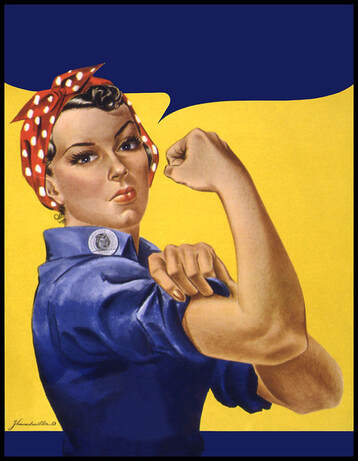all of the selves we Have ever been
 “…the great gift of memory is that we can choose to live in the resplendent moments.” – Mary Pipher I have taken up bask fishing. I got hooked on the sport at the Heart Walk a little more than a week ago. I signed up to support a friend and former co-worker who had suffered sudden cardiac arrest. Miraculously, skilled health care professionals were in the restaurant where it happened. Seeing her collapse, they came to her aid. While my friend never got to eat her favorite peanut butter pie, dessert was served: her life was saved. A year later, we, the grateful, gathered at a large city park for a photo and then to walk to celebrate the life of our friend and the work of those who save lives. As the crowd thickened, other former co-workers arrived, and we embraced and caught up. Many of them I had not seen in ten years or more. Though some of us now sported gray hair and white stubble, wrinkles and rounded bellies, we remained immediately recognizable to one another. Moving through the throngs on our way to the starting line, I spotted other former colleagues and reached out for quick hugs while on the move. “Work is love made visible.” – Kahlil Gibran After the walk many of us gathered at a pizza joint to eat and celebrate. The gathering was hosted by our survivor-friend and her husband. Others who did not make it to the walk arrived as well. There were more embraces and more joy as we remembered a time when, together, we did work that was hard but holy, work that was made easy because we loved each other. I watched my friend’s husband move between the three large tables that seated our crowd. He greeted each of us with kind words and embraces. He paused now and then to clink a glass with his wife or to lean in for a kiss, and I thought back to the time when they had just met, and our circle grew because of him. I was moved by the memory and by the way this thoughtful, kind man loves this spunky, bright woman. I trust his sincerity whenever he says, “We’ll get together soon,” because I know he means it. A young lady I did not know sat down in the seat across from mine. Unable to walk earlier, she joined us for lunch. She sported a walking boot and a treasure chest of funny stories. This young lady brought me up to speed on the difficulties of young adulthood in the current state of world affairs--the impossibility of finding affordable rent, and the dearth of good jobs and meaningful work. I wished I could take her back with me to that other time in my own work life. Instead, I basked in her youth and her charm, and this widening circle. On Monday morning, still high from the Saturday Heart Walk, I arrived at the radiology clinic for a follow-up appointment. In came the doctor. In came the nurse. In came the nurse practitioner. I was encircled by their youth and extraordinary kindness and care. Their brilliance twinkled all around me like lights on a Christmas tree. For a moment, I felt sad realizing that my time had passed, that I will never again work in a place like this surrounded by all of this youthful energy and confidence, this type of devotion to the work. Then the doctor told me that he is training for Pelatonia, the bicycle race with “a mission to change the world by accelerating innovative cancer research.” Sadness gave way to gratitude as I basked in the knowledge that this busy and beautiful man who harnesses the power of the sun to cure cancer will also use his bicycle to save lives, mine included. There are things left to wish for, races to run. I arrived home to find a few long-time neighbors out on the stoop. I reeled them in. Memories are everywhere. They hold the past and shape the future. Care to join me as I fish? Just basking.
2 Comments
 Ever have one of those days? You wake up and you’re already tired? And then a stink bug lands on your face, and you slap yourself in the eye as you leap out of bed, tearing a toenail in half from sudden hard contact with the bed frame. You go for a morning jog and your bra strap breaks. One of the girls gets loose and you take a left uppercut to the chin with every stride. Instead of the runner’s high that typically fuels your day you find yourself miserable, praying to make it home before there’s a full knock out. Starving, you pour your cereal only to find that there is but a teaspoonful of milk left in the carton, and you rue the day you became the Restocker-in-Chief. Disgusted, you skip breakfast even though your stomach grumbles that you are making a big mistake. Everything about this new day screams: Retreat! And yet you soldier on. You step into the shower where the full-on hot is barely warm. You get yourself and the children out the door. Everyone has their bags, their folders, their lunches, and their signed permissions slips. Your note says: Get milk. You endure the traffic and the road construction while fretting over that darn tire pressure light glaring at you. The first to arrive at work, you switch on the lights and make the coffee. You turn on the computer and are faced with a technical difficulty. The bot chat proves worthless. You get to a customer service rep who you know is reading from a script. Before you are completely hypnotized by the repetition, you try to come up with your own solution to the problem, something that won’t involve job loss or prison time. The day wears on. You stay on the job, and the work gets done. You provide for your family, and you help a few strangers along the way. There will be no extra credit for all of the terrible things that you thought about but did not do. You did not leave your litter on the running path. You did not explode in a fit of road rage at your fellow rush hour travelers. You did not ridicule the customer service representative. You did not quit. In life, it is the small things that break us, and we never know what sorrows or fears are in the bags of our fellow travelers, the things that leave them too short on strength to take on all of the small stuff. We underestimate and undervalue the everyday bravery it takes to endure so many small things. Now some may say that is too negative. They may see the empty milk carton as half full, and perhaps it is they who left it on the shelf, but it is the person who is sure that the carton is empty and who stops at the store to replace it that is both a realist and an optimist. There will be milk tomorrow. With advancing age, I have come to realize how much everyday bravery it has taken to get me to where I am today. Now, when I see people receiving awards, I think about their talent for sure. Maybe it is beautiful writing that results in a Pulitzer Prize. And then I think of the editor who perfected every sentence despite the whining of her stable of writers, and the lowly intern who read the first draft from a mile deep pile of submissions and recognized that he had found something special, or the secretary who answered a hundred calls from impatient submitters, or that maintenance man who came to work in a snowstorm and turned on the lights, or the typesetter who chose the font and made the book real. In the background of all of their lives, there were sick children, aging parents, past-due bills, major disappointments, a myriad of small obstacles. And no awards. Self-help gurus advised us long ago not to sweat the small stuff. Easy for them to say. I am pretty sure that the world keeps turning and the winners keep winning because of the farsighted courage of all the quiet and sweaty people who faced down the small stuff.  Robinson Crusoe had a right-hand man. Crusoe discovered his faithful assistant while shipwrecked on a deserted island. Crusoe named the guy Friday after the day of the week on which they met. The Guy Friday role didn’t stick outside the confines of fiction (and colonialism and slavery). Men may have sidekicks, but not doting subservient male assistants. Men are too competitive with each other, and a subservient male is not…well, not really a man in the cultural opinion. Hence, the right-hand man became the right-hand woman, a Girl Friday, someone who assists men in powerful positions. Think Della Street to Perry Mason. Men need help attending to the details, but they don’t like to admit it. For too many years, powerful men acted as though they were doing the ladies a favor by “letting them work,” allowing them a front row seat to power, so long as they dusted off the chair and served the coffee while it was hot. They might even have paid the ladies a few bucks to buy a pretty dress. Despite the fact that Erle Stanley Gardner, the creator of Perry Mason, described Della Street as fast as hell on her feet, and someone who had been places, it was Perry Mason who got his own show. Perry Mason was known to put up a good fight in the courtroom and come out a winner, and men are known for the classic response of fight or flight when under stress. Women, on the other hand, fall back on tend and befriend which leaves them cleaning up a lot of the aftermath of fight and flight. Women do the stuff that men don’t want to do. Rather than admit it is important work too, women’s work has been minimized in value because value has been calculated by what men found interesting. Men had it all because women did it all. The division of labor was not a balanced equation. Men could build careers and power because they could single-mindedly focus on careers and power. A woman’s attention had to be divided, and her time shared with household duties, childbearing, spouse, children, neighbors, community, aging parents, bosses, co-workers… Della Street was certainly smart enough to have her own law firm, but if Ruth Bader Ginsburg couldn’t find a job in one, Della was at an even greater disadvantage. Today, she might get that job, but she must also be prepared to take care of everything else including homeschooling the kids through a pandemic, caring for aging parents and in-laws, chairing the PTA, keeping everyone, including the pets, up-to-date on their health care and vaccinations... She might be doing all of this while also recovering from the wounds of war and military service, or while recovering from the many transitions of serving as a military spouse. Men are judged on one role: man. Women serve as wives, daughters, sisters, mothers, friends, coworkers, and are judged ceaselessly on an endless set of expectations. People discard these kinds of thoughts coming from women as “man-hating.” It is another form of disregard for women’s needs and opinions. It turns the conversation into a fight from which women too often flee. This is a necessary and timely conversation. It is not about starting a fight with men. It is about tending to the contributions of women: caring for others matters, attending to details matters, cleaning up messes matters. The world doesn’t work without it--for women or for men. A man calls his faithful assistant Friday, a practical name reminding him of the day of the week on which they met. To get Friday to do the dirty work, Crusoe enslaved him. Women don’t want to be enslaved. Women do want to work and perform well in all of their roles chosen and assigned. And while women need some help too, they don’t have faithful assistants or servants; they have friends. And they tend to them every day of the week. Let’s face it, if all the men in the country took the same day off, there might be peace on earth. If all of the women took the same day off, the country would collapse, proof that women ARE infrastructure. Women tend and befriend, and they bend. We can’t allow them to break. The country owes a debt to women who keep the world working. Mitch McConnell, Joe Manchin, and the rest of you who show up in clean laundry--the bill is past due. Women need faithful assistance too. (And, here, I must give a shout-out to my own Gal Friday. She came into my life as a coworker when I was shipwrecked in Columbus, Ohio. She had landed on the same deserted island a few months earlier. We sat next to each other at work for many years. She was a faithful co-worker and has remained a faithful friend. During the pandemic, I experienced a period of declining vision which increased my isolation. My Gal Friday came faithfully every Friday evening to offer friendship, companionship, assistance, and adventure. She has been my steady, unbending infrastructure in a time of biological and social collapse. My Gal Friday is pretty good Saturday through Thursday too! I am grateful to you, Kristi, well beyond these few words.) |
AuthorLilli-ann Buffin Archives
July 2024
Categories
All
|
 RSS Feed
RSS Feed